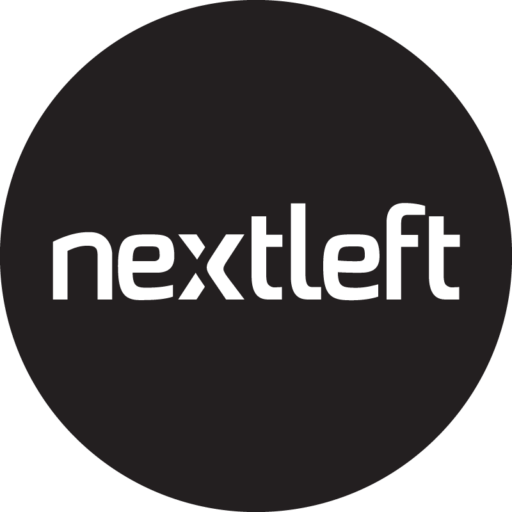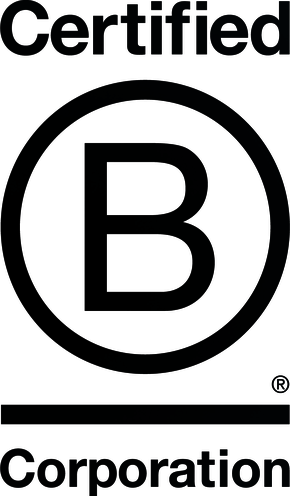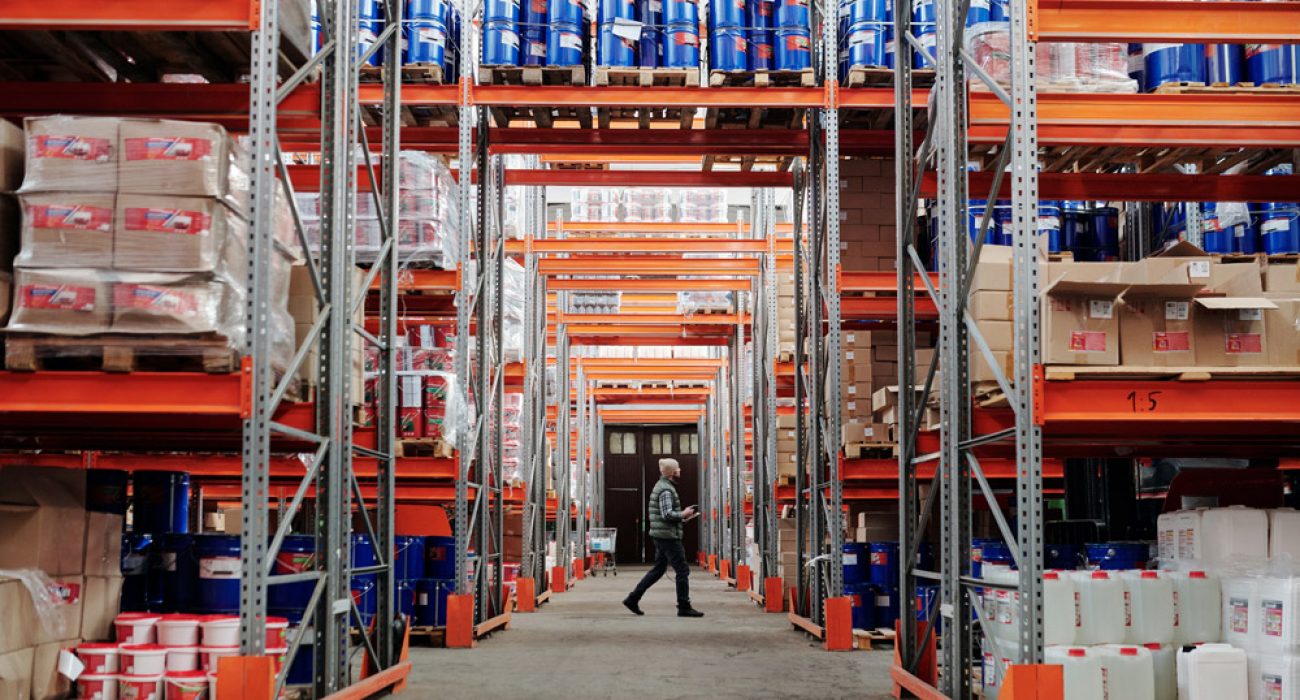ShipCalm, is a leading e-commerce 3PL focusing on fulfillment and logistics nationwide. Our companies work together to grow ShipCalm as an industry leader, expand their SEO reach, and generate more sales. We sat down with ShipCalm’s founder, Greg Moser, to inspire future founders as well as other B2B business heads.
What inspired you to start ShipCalm?

Gosh, a lot led me here. I’ve been in e-commerce for about 20 years, so a long time. In my last business, we built an e-commerce software platform that was mostly sold to mid-market and enterprise companies. At that time, we were solving a lot of problems for companies on the sales and marketing side of their businesses and what we kept struggling with time and time again was the actual operational support for those brands (ie. The post-purchase experience, getting goods to customers efficiently, etc). I met with warehouse operations teams and I wasn’t able to find a solution that met the modern standards of the e-commerce landscape, so I decided I wanted to jump in.
Additionally, for the last 7 or 8 years, I have been a huge fan of helping mentor startups and small businesses- and at the end of the day that’s really what we do here at ShipCalm, we’re focused on making our customers more successful. If we can help improve their overall business operations, it just increases the likelihood that they will have a successful business. For me personally, that’s what get’s me excited about getting out of bed every day and jumping for joy because I get to work with and talk to entrepreneurs and learn about their new products, what they’ve made, and why- it’s super fun for me.
How do you solve for your clients/ customers?
It’s a big space. At the end of the day, what a lot of brands don’t realize is that how they run their operations directly impacts their gross profit margins. In fact, one of the things that I find funniest with some of the brand owners I meet, especially when they are selling something big and bulky, is when I hear them say, “OMG, I wish I would’ve known how expensive logistics were before I picked the product I did”. That said, sometimes we work with brands before their first order to help people with pre-product launch questions such as how they are packing their goods, where they are manufacturing them, and what’s the most cost-effective solution for their supply chain. That’s a really big aspect of what we do.
Once the goods get here, whether they are manufactured here or overseas, we really help with strategizing what is the cheapest and fastest way to get products to customers so that they can get the “Amazon” one to two-day experience at the lowest cost to them and their customers.
Probably the biggest thing though that we can really help with is understanding inventory and inventory forecasting. The biggest constraint to a growing DTC business is the cost of inventory. As they (the business) get bigger and bigger they have to buy more and more inventory and the cash to do that is exceptionally challenging. With our software, we help businesses define what to buy, when to buy, where to buy from, and what warehouses to house the goods in so that it’s most effective. When there is a shortfall in a business’s cash flow and ability to fund inventory, we actually set them up with financing too, and help on that side of things as well.
At the end of the day, we really view our customer’s customers as ours. Every order is the most important order to someone. When you’re running a brand, you might get 1,000 orders a day and it can be really easy to get caught up in the monotony of that, but at the end of the day, there is an end consumer waiting for this thing to show up. I think one of the key ways we have been helpful here is to communicate to the end user what the expectations are when there are going to be challenges, and why because that can really hurt a brand, especially in the era of social media.
Who is your ideal customer?
Our target customer sweet spot is what we call “digitally native brands” or brands that grew up on the internet (DTC) between $1M to $100M in revenue. We actually have a number of companies in the startup range too. We’re fortunate to have the ability to advise and help a certain allotment of customers at any given time that are literally brand new businesses we just believe in.
Give us a current snapshot of ShipCalm- what’s exciting to you about working in Third Party (eComm) Logistics today?
I think one of the things that is most exciting is the digitization of the entire supply chain. I’m a data guy and a lot of our team here are heavy tech users. We have always wanted to do something really cool stuff with technology, but access to information (ie. ocean carriers, local freight providers, etc.) and being able to move this data around hasn’t always been particularly easy to do. Today it’s much easier, so for me that is very exciting because it’s opened the door to all sorts of opportunities where we can come in and provide intelligence to the overall supply chain just because there are so many more partners in the ecosystem. We’re seeing so many new companies and innovations pop up in the space, and being able to stitch that all together is really exciting.
Tell us about ShipCalm’s marketing structure/team, what made you consider a digital marketing agency, and why did you choose NextLeft as a strategic marketing partner?
We’ve been working with NextLeft for a long time. The very first business I founded when I was 19 was a digital marketing agency. We did SEO, paid ads, Facebook ads, etc. and my job was to take brick-and-mortar retail businesses to the DTC online space. When I started Shipcalm, I was the guy in charge, and there was so much to do for one person. I interviewed a number of service providers and knew I wanted to hire an agency. I ended up meeting NextLeft in 2019 through a friend’s referral and we have been working together ever since. It’s been really cool to see the online traffic grow month over month. They know what it means to add value, be prepared, and get results.
What are the 3 software tools or platforms that keep the wheels moving at ShipCalm?
- Infoplus
- Hubspot
- ShipCalm’s AI Software (Marvin)
What is your biggest client acquisition channel to date? How has this changed over the years?
In the very early days, our biggest acquisition channel was our personal networks. That worked well for us then, but it can only get you so far. Today, the majority of the business is coming from inbound lead flow which can be attributed to SEO (organic search), Google Ads, and social.
How has your business shifted, grown, and or changed since COVID-19?
Pre-COVID we were growing, and fast. Then March 2020 came around and that was a really interesting time with a tremendous amount of uncertainty. At that point, we were not sure if COVID was being transmitted on surfaces, so for a shipping and fulfillment company that was receiving goods from Asia, it was really unknown and scary.
Right after those first few months, ShipCalm ended up playing a huge role in moving PPE equipment to get products to the front line. As a side effect of getting really involved in this, our business grew. Then a few months later, the supply chain and PPE stabilized and everyone was shopping from their home- eCommerce took off. Companies started sending us more work to outsource including Amazon, with who we have been a long-term partner.
In 2021- we really saw a huge surge in demand for consumer products online which exasperated supply chain issues. Now, everything seems to be calming down, certainly not to where it was before, but calmer than it’s been. I think what we have realized is that we need to be a little more resilient with inventory and shift from thinking “just in time” to “just in case”. In a lot of ways, it’s created a lot of opportunity for us; as the eCommerce ecosystem gets more complicated there is a bigger need for the Marvin’s of the world (ShipCalm’s AI product).
What companies do you look up to? Why?
Amazon: They’ve done a lot of positive and negative. I pay attention.
Shopify: I really look up to this company. They have enabled so many entrepreneurs by winning the simplicity race, lessening the barrier to entry, and providing a platform that is made for scale.
Flexport: Their CEO has been really ahead of the curve as far as using data in logistics.
What’s next for ShipCalm? Any exciting plans or goals you’re working towards?
We have had a lot of successes up until now. We’ve been running for five years now and we’re growing YoY at a crazy rate. We’ve been able to obtain some great capital partners which is allowing us to scale, adding four new facilities over the next 2.5 years. Adding those facilities and capacity to our network is super exciting- it’s always exciting to visit different parts of the country and see how expansion impacts those local communities. We’re excited for the future.


